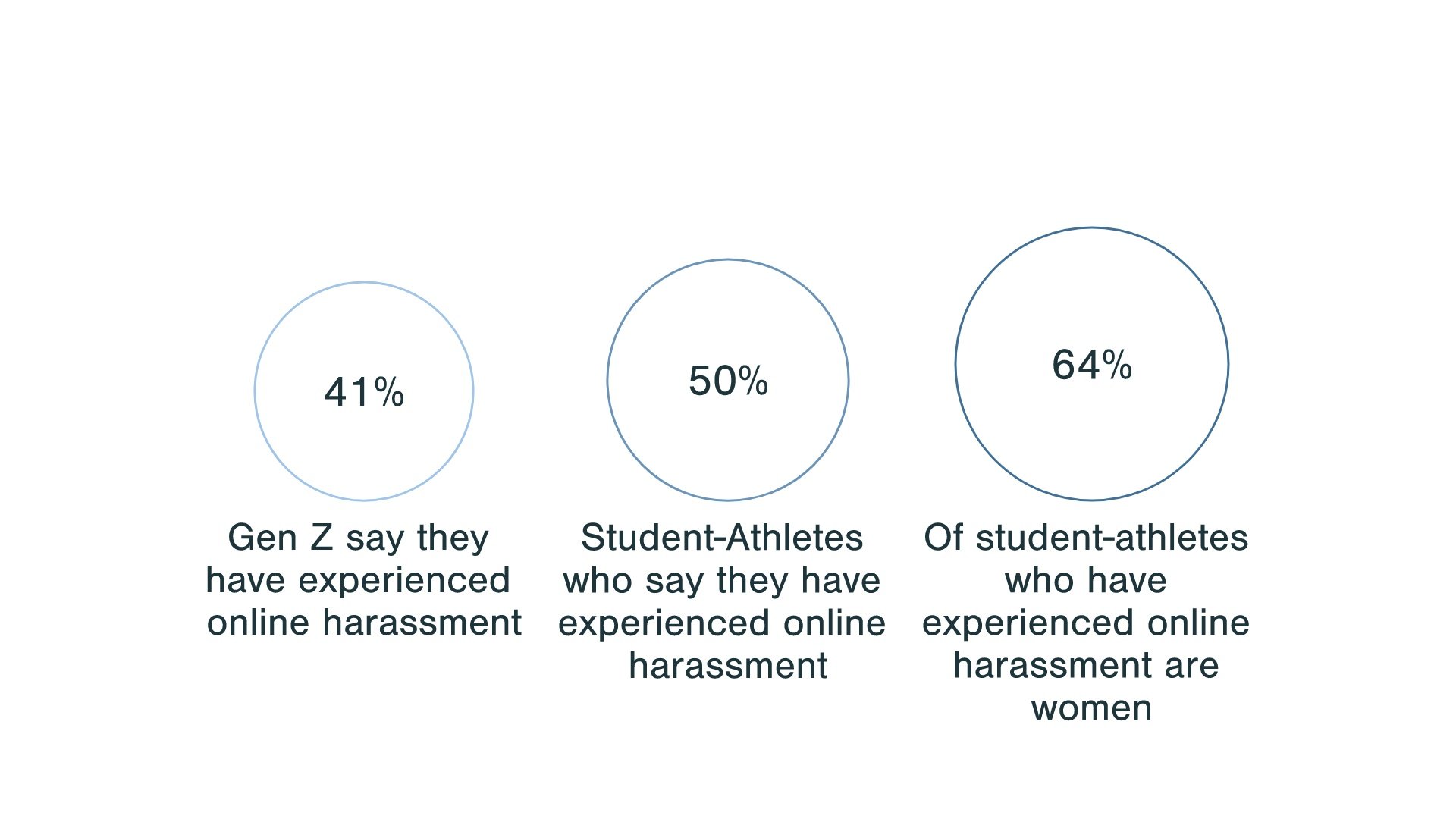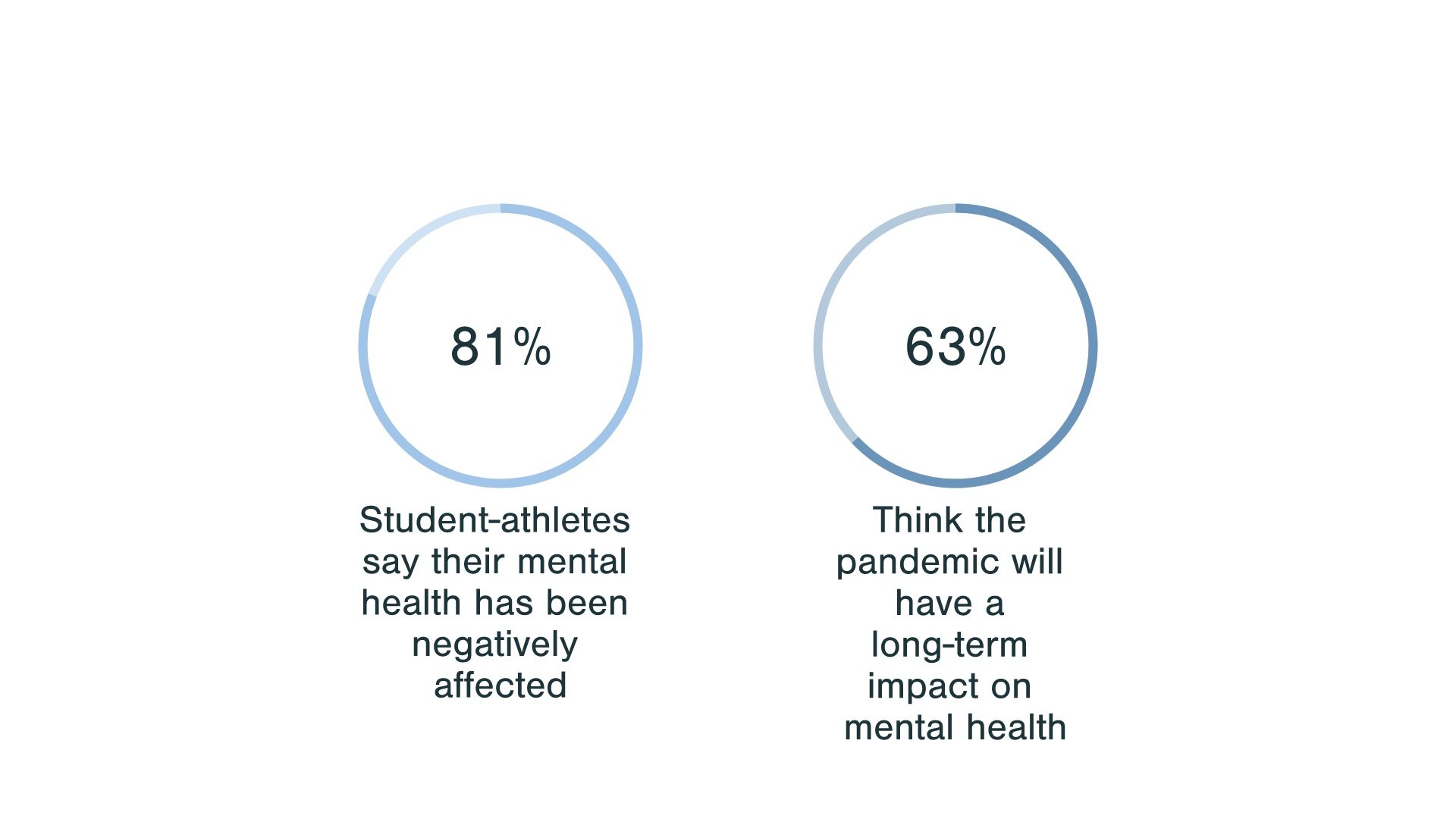Accountability, Harassment, and Mental Health: 3 Gen Z Trends You Should Know
Since developing a community of about 5,000 current student-athletes, I've done more listening than asking questions, enabling them to steer the conversation and identify the topics for surveying. In a recently completed study of 1,200 student-athletes, here are 3 key trends they identified.
Accountability is Alive and Well
While it may look different from prior generations, the concept of accountability is alive and well within Gen Z. Not sure about that? Example #1 is the phenomenon of "cancel culture" or a person being obstructed from a prominent position or career based on their actions or stated views. Politics aside, to Gen Z, cancel culture is about accountability. Example #2 is the increased scrutiny that organizations face. The idea of "ethical consumerism" and "ethical participation" have been created - or at least prioritized by Gen Z. 83% of student-athletes pay attention to an organization's ethics. They're suspicious of organizations' claims on social justice. And yes, some of them are feeling defeated; nearly 60% say there are just too many problems in the world to solve.
Online Harassment Remains a Problem
Despite it being a focus during the last decade, the problem of online harassment or cyber-bullying shows no signs of letting up. In fact, it's become so widespread that there has come a normalizing (though not acceptance) of the behavior. About 70% of student-athletes have witnessed online harassment of others and 50% have experienced it directly. Possibly because of their more public profiles, student-athletes are the target of online harassment at a greater degree than the general student population. And nearly three quarters of harassment of student-athletes targets women.
Mental Health Post-Pandemic
The pandemic may have the feel of winding down, but 81% of student-athletes say their mental health has been negatively affected by the past 24+ months. 63% think the pandemic will have a long-term impact on their mental health. A key source of relief throughout pandemic has been being a student-athlete. 84% of student-athletes say their teammates, coaches, and team related activities (when allowed) have been "the thing" that's gotten them through.




